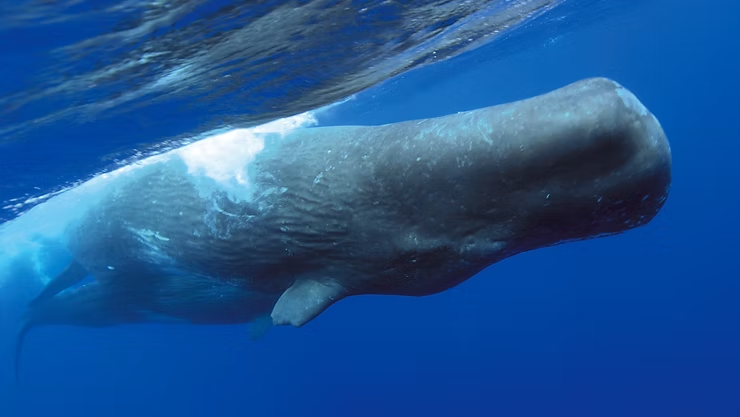The Mighty Sperm Whale
Sperm whales are the largest toothed whales on Earth and among the most fascinating marine creatures. Adult males can grow up to 18 meters long and weigh more than 50 tons, while females are notably smaller. Their enormous heads, which make up nearly one-third of their body length, house the spermaceti organ that aids in buoyancy and echolocation. They also possess the largest brains of any known species, weighing up to 20 pounds.
Unique Adaptations
Hunting Skills
These whales are deep-diving specialists, capable of holding their breath for up to 90 minutes. They hunt squid and fish at depths greater than 1,000 meters, often swimming belly-up to spot prey against the faint light above. Echolocation serves as their sonar system, enabling them to locate meals in pitch-black waters.
Feeding Habits
- Consume around one ton of food per day.
- Diet consists mainly of squid, but also includes fish and sharks.
- Vertical lunge feeding helps them capture prey from below.
Breathing Patterns
Sperm whales’ ribcages collapse during dives to avoid decompression sickness. At the surface, they breathe deeply for several minutes before submerging again, sometimes spouting up to seven times per minute after a long dive.
Social Behavior
These whales live in pods led by females, with males usually traveling alone or in small groups. Communication occurs through codas—patterns of clicks unique to each pod. This complex acoustic system helps maintain strong family ties and coordinate behavior.
Global Habitat
Sperm whales are found in all the world’s oceans, especially deep offshore waters. They migrate seasonally, moving to higher latitudes in summer for feeding and shifting toward equatorial regions during winter for breeding.
Conservation Challenges
Threats
- Entanglement in fishing gear and ship strikes.
- Pollution, including plastics and chemical toxins.
- Noise pollution interfering with communication and navigation.
Conservation Efforts
International agreements and organizations work to protect sperm whales by creating marine protected areas, reducing ship collisions, and monitoring populations. Researchers emphasize their role as indicators of ocean health, making their protection essential for marine ecosystems.
Why They Matter
Sperm whales are more than ocean giants; they are vital players in maintaining balance in the deep sea. By regulating squid populations and recycling nutrients, they contribute to ocean health. Studying their behavior and biology also deepens our understanding of marine ecosystems.
Conclusion
Sperm whales inspire awe with their massive size, intelligence, and complex societies. Protecting them ensures the preservation of both their species and the health of our oceans. From their hunting techniques to their vital role in marine ecosystems, sperm whales remain one of nature’s most extraordinary creatures.

